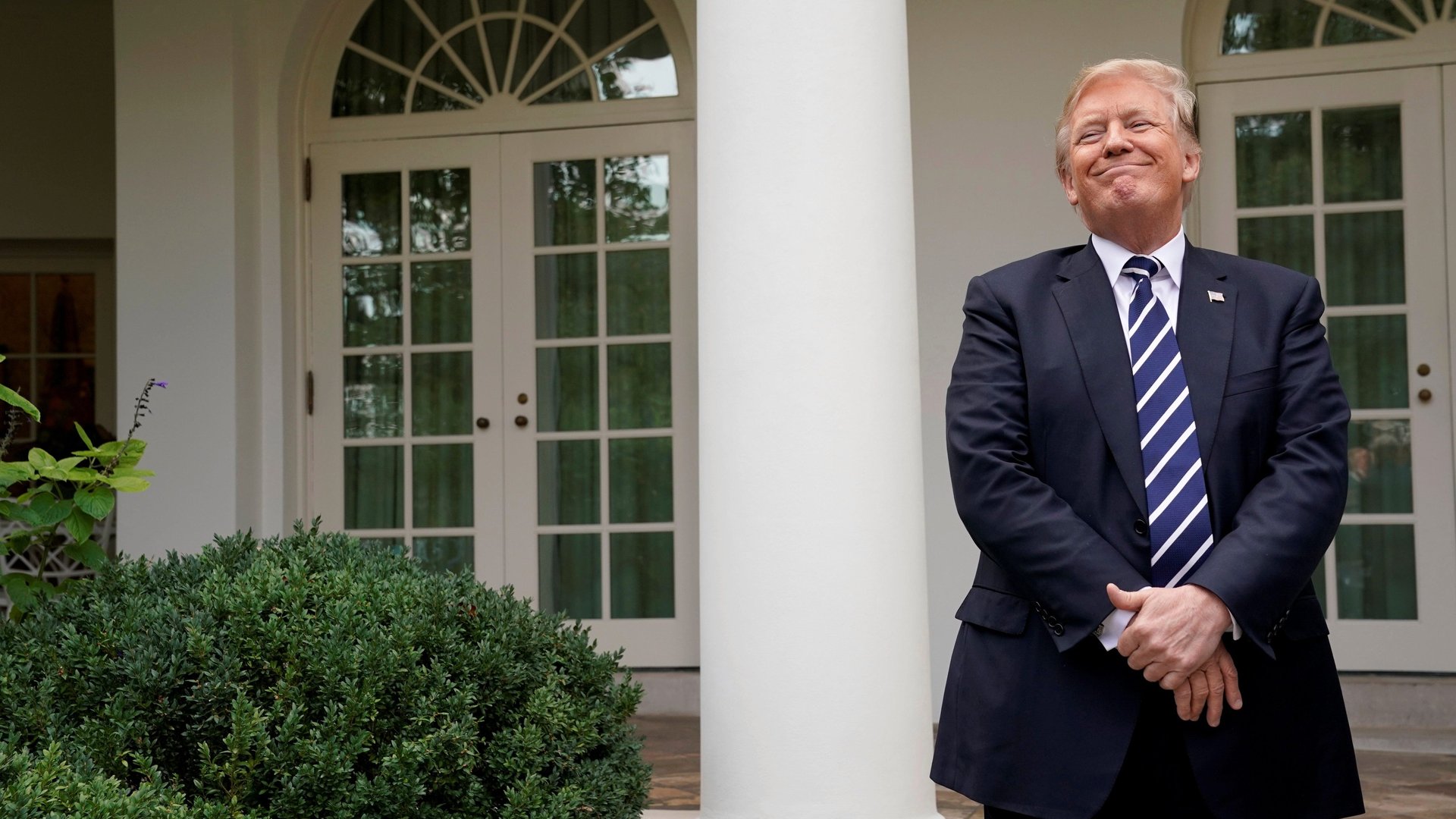Everything Donald Trump got wrong about national security in five tweets today
Donald Trump began his day angrily contradicting congressional testimony by his top intelligence chiefs on matters of national security, calling his own appointees “extremely passive and naive.”


Donald Trump began his day angrily contradicting congressional testimony by his top intelligence chiefs on matters of national security, calling his own appointees “extremely passive and naive.”
Trump is not normally known to be receptive to advice, particularly from experts. On defense issues, he has said, at various times, “There’s nobody bigger or better at the military than I am,” ”I know more about ISIS than the generals do,” and, “There is nobody who understands the horror of nuclear more than me.”
The president’s early-morning Twitter tirade today (Jan. 30) came less than 24 hours after congressional testimony by FBI director Christopher Wray, CIA director Gina Haspel, director of national intelligence Daniel Coats, Defense Intelligence Agency director Robert Ashley, National Security Agency director Paul Nakasone, and National Geospatial-Intelligence Agency director Robert Cardillo. The intel leaders presented their annual analysis of global threats to the Senate Select Committee on Intelligence in a public morning session, then followed up with a classified briefing to lawmakers in the afternoon.
On Iran
Iran is a state sponsor of terrorism, and maintains the “largest inventory of ballistic missiles in the Middle East,” US director of national intelligence Dan Coats told the Senate intelligence committee yesterday. However, Tehran has been in compliance with the 2015 Joint Comprehensive Plan of Action, under which it agreed to limit its nuclear program in exchange for sanctions relief. “[W]e do not believe Iran is currently undertaking the key activities we judge necessary to produce a nuclear device,” Coats said. And while Trump is correct that the sanctions he re-imposed on Iran in November will not help “there” economy, a downturn will only cause its leaders to, as Coats said, “push the boundaries” of the nuclear restrictions.
On the southern border
In a hearing before the House Armed Services Committee yesterday, Pentagon officials said they do not see the situation at the US southern border as a national security issue, as Trump, who reportedly does not have the patience to sit through an entire intelligence briefing, has described it. The 5,000 troops sent there in October to fend off the last caravan, which included large numbers of women and children who had joined the group for safety reasons, were not operating on an emergency footing, the officials told the committee. They added that the 2018 “National Defense Strategy,” the Pentagon’s annual review used to allocate resources based on security threats, does not even contain the term “southern border” or the word “caravan.”
On North Korea
It’s not a “whole different story,” because in reality nothing has changed. North Korea is “unlikely” to give up its nuclear weapons, Coats said in his testimony. The country’s nuclear arsenal is vital to the Kim regime’s survival, he explained, an assessment “bolstered by our observations of some activity that is inconsistent with full denuclearization.”
On ISIS
Not exactly, Coats told lawmakers.
“While ISIS is nearing territorial defeat in Iraq and Syria, the group has returned to its guerilla-warfare roots while continuing to plot attacks, and direct its supporters worldwide,” he said. “ISIS is intent on resurging and still commands thousands of fighters in Iraq and Syria.”